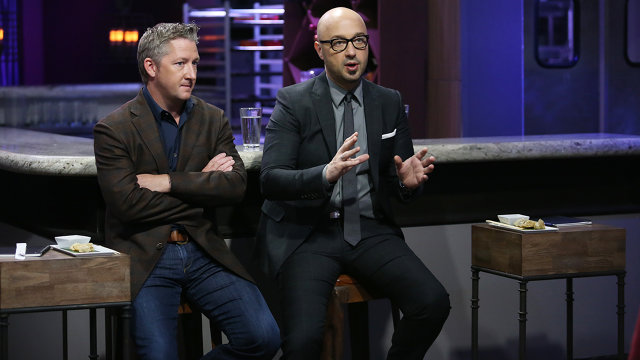Restaurant Startup – I find in my family that my entertainment choices 1. Don’t excite other people and 2. Aren’t well trusted enough to muster enthusiasm to actually watch a film every once and a while. I imagine that comes down to my poor choices in films this week that did not hold mass appeal among our voting board (if you are curious, those movies were Riddick, the new one, and The Million Dollar Arm). So, what do we watch instead? CNBC Primetime shows! And, honestly, all of them so far have been really interesting, and actually insightful, dives into the inner workings of specific industries.
I went into Restaurant Startup knowing full well how bad it is to become an entrepreneur in the restaurant industry at all. Even if the celebrity television chef myth of “90% of all restaurants fail in the first year” doesn’t hold water to actual statistics, even the 50% number cited by this study should tell you that it remains a difficult venture, suitable only for the noble fool who wants other people to taste his/her food product. Enter this show, which definitely takes a much different tack than Shark Tank in that many of these “ideas” are just “ideas” with zero proof-of-concept as to expand the business itself or anything to that effect. Yes, they’ve got sales and the like, but some of the contestants come from festivals and food trucks, not brick-and-mortar restaurant experience.
To give a quick synopsis of the show itself, celebrity restaurateurs Joe Bastianich and Tim Love choose between two potential restaurant teams. Why two? Because silly, this is television, and television entertains! The team they select then has 36 hours and $7500 to refine their restaurant idea (including logo design, decor, and new menu). The team then re-pitch their idea and Bastianich and Love decide if they will invest in the company. You might think this slightly insane for a few reasons. For one, why do they need to do so much work? Ah, what’s in a name? If you want to start a restaurant with other people’s money, you actually need to prove that you can run a restaurant. As such, the budget and the numbers, seemingly arbitrary components of the experience, matter a whole lot – will this person come under budget?
And then there’s the further requirement of being able to run a full kitchen or just run the front desk in a way that makes the customer feel ALWAYS right. You can’t run out of food, you can’t say “I’m tired” until the day is done. They intentionally load up the restaurant to full capacity so that the contestants can feel the real stress of feeding hundreds of super hungry people who don’t take kindly to late food. All this works comes down to what amounts to really, really stringent and tight equity deals; in any restaurant business, the investor has the upper hand by default given the ubiquitous failure rate, so you can imagine 85% equity stakes does not go far from the norm.
However, I’m glad to say this does not remind me of a Gordon Ramsey shout-fest – everyone simply wants to make money, and if the aspiring restaurateurs can prove their worth under stressful conditions, then they often get a deal from one of the two dudes (provided, of course, that they accept the deal). Two questions come to mind, though. One, why would food truck people want to run a restaurant? I get that it’s “the dream”, but the dream in this case requires an entirely new set of skills that you may not even have. Second, do you need a physical location so, so bad that you would be willing to give up more than 50% of your company in perpetuity with no option to buyback any further? These seem like notable concerns, but passion never governs wisely.
Actually, I think I overstate that a bit. In the two episodes I watched, both deals technically did not go through – one guy just decided he would rather run a food truck, and that makes the most sense if you’ve got 280k in cash receipts in Tulsa, OK (like, seriously, why is this guy on this show again?). The second entrepreneur simply realized she didn’t want to work in a restaurant context, and would rather design, sell, and create her product behind-the-scenes and let other people sell it at retail. One thing’s for sure: the trial of Restaurant Startup actually teaches people important lessons about what they really want in life, and while some dreams are shattered, they get better ones in the process.
All this is to say that Restaurant Startup is worth your time if you enjoy the “business reality television” genre. I would call it very solid, if not exactly as entertaining as Shark Tank; then again, they present entirely different subjects, so I cannot be too picky about it.

